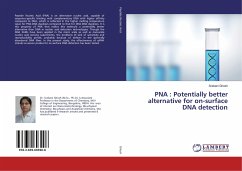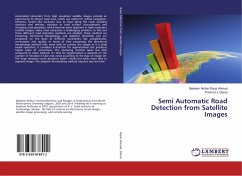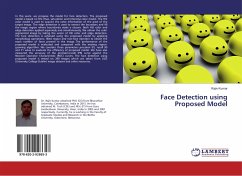
PNA : Potentially better alternative for on-surface DNA detection
Versandkostenfrei!
Versandfertig in 6-10 Tagen
51,99 €
inkl. MwSt.

PAYBACK Punkte
26 °P sammeln!
Peptide Nucleic Acid (PNA) is an alternative nucleic acid, capable of sequence-specific binding with complementary DNA with higher affinity compared to DNA, which is reflected in the higher melting temperature value for PNA-DNA duplexes compared to that for DNA-DNA duplexes. It is this property of PNA that makes this molecule a potentially better alternative than DNA in nucleic acid detection technologies. Though the DNA SAMs have been applied in the micro scale as well as nanoscale nucleic acid sensing experiments, the problems of lack of sensitivity and reproducibility persist, probably beca...
Peptide Nucleic Acid (PNA) is an alternative nucleic acid, capable of sequence-specific binding with complementary DNA with higher affinity compared to DNA, which is reflected in the higher melting temperature value for PNA-DNA duplexes compared to that for DNA-DNA duplexes. It is this property of PNA that makes this molecule a potentially better alternative than DNA in nucleic acid detection technologies. Though the DNA SAMs have been applied in the micro scale as well as nanoscale nucleic acid sensing experiments, the problems of lack of sensitivity and reproducibility persist, probably because of defects in the generally disordered DNA films. In the present study, the effectiveness of ssPNA strands as sensor probes for on-surface DNA detection has been tested.












